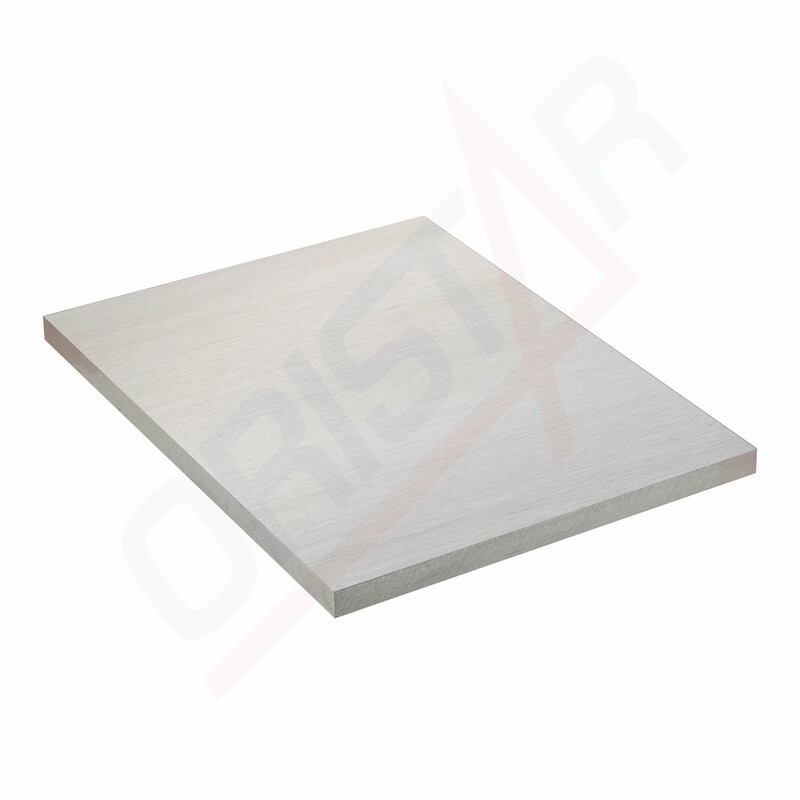THÔNG TIN CƠ BẢN
Aluminum Alloy ACP 5052 is a popular aluminum alloy in the 5000 series, known for its high strength, good corrosion resistance, and ease of fabrication. This alloy is commonly used in applications that require a combination of strength and corrosion resistance, such as in the construction and marine industries.
Key Characteristics of Aluminum Alloy ACP 5052:
- Chemical Composition:
- ACP 5052 primarily consists of aluminum (Al) with key alloying elements including magnesium (2.2-2.8%) and a small amount of chromium (0.15-0.35%). This composition enhances the alloy’s corrosion resistance and mechanical strength.
- Physical Properties:
- Corrosion Resistance: Aluminum ACP 5052 has excellent corrosion resistance, particularly in marine environments or humid conditions.
- High Mechanical Strength: This alloy provides good tensile strength and hardness, making it suitable for applications that require load-bearing capacity.
- Ease of Machining: ACP 5052 is easy to machine, weld, and process, suitable for various manufacturing methods.
- Applications:
- Construction: Used in exterior cladding panels, signage, and decorative structures.
- Marine Industry: Applied in boat parts and outdoor applications requiring corrosion resistance.
- Automotive Industry: Utilized in parts requiring durability and corrosion resistance.
- Industrial Equipment: Used in manufacturing machinery parts and equipment that require mechanical strength.
- Shape and Size:
- Aluminum Alloy ACP 5052 can be supplied in forms such as sheets, coils, bars, or custom products depending on specific application requirements.
Manufacturing and Processing:
- Aluminum Alloy ACP 5052 is typically produced through extrusion, rolling, and heat treatment processes to achieve desired mechanical properties. Fabrication processes include cutting, bending, and welding to meet specific technical requirements.
(Source: Internet)
Key Characteristics of Aluminum Alloy ACP 5052:
- Chemical Composition:
- ACP 5052 primarily consists of aluminum (Al) with key alloying elements including magnesium (2.2-2.8%) and a small amount of chromium (0.15-0.35%). This composition enhances the alloy’s corrosion resistance and mechanical strength.
- Physical Properties:
- Corrosion Resistance: Aluminum ACP 5052 has excellent corrosion resistance, particularly in marine environments or humid conditions.
- High Mechanical Strength: This alloy provides good tensile strength and hardness, making it suitable for applications that require load-bearing capacity.
- Ease of Machining: ACP 5052 is easy to machine, weld, and process, suitable for various manufacturing methods.
- Applications:
- Construction: Used in exterior cladding panels, signage, and decorative structures.
- Marine Industry: Applied in boat parts and outdoor applications requiring corrosion resistance.
- Automotive Industry: Utilized in parts requiring durability and corrosion resistance.
- Industrial Equipment: Used in manufacturing machinery parts and equipment that require mechanical strength.
- Shape and Size:
- Aluminum Alloy ACP 5052 can be supplied in forms such as sheets, coils, bars, or custom products depending on specific application requirements.
Manufacturing and Processing:
- Aluminum Alloy ACP 5052 is typically produced through extrusion, rolling, and heat treatment processes to achieve desired mechanical properties. Fabrication processes include cutting, bending, and welding to meet specific technical requirements.
(Source: Internet)



